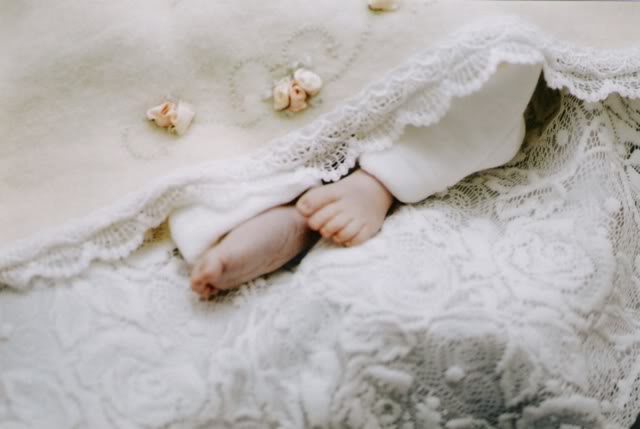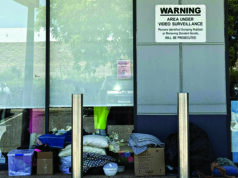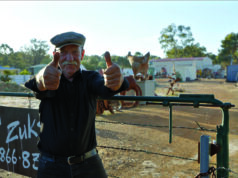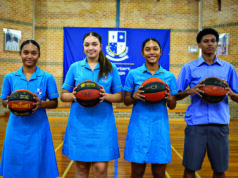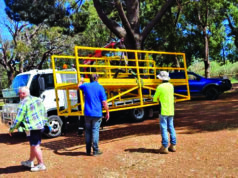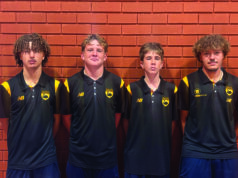For many, Mother’s Day brings flowers, smiles, and celebration. But for others, it’s a reminder of what’s missing.
Others carry quiet pain; pain that lingers, especially when it comes with loss.
For Tina Blackhall the day holds something different…..heartbreak, memory, and quiet resilience.
Her first child, Alexander, was born still at 37 weeks; just one week before Mother’s Day. That was 21 years ago, but Tina remembers every moment like it happened yesterday.
“I was supposed to be celebrating my first Mother’s Day with my newborn,” she said.
“Instead, I was planning his funeral.”
Tina’s journey to motherhood started in 2001, just after she got married. She always knew she wanted to be a mum and began trying for a baby straight away. But months passed. Then a year. And still, no pregnancy.
Doctors diagnosed her with polycystic ovarian syndrome (PCOS). It didn’t make pregnancy impossible, but it made it harder. Tina tried everything- medications, naturopathic brews, lifestyle changes- but nothing worked.
Two and a half years later, just as she was considering IVF, Sharon finally conceived.
She was overjoyed. But pregnancy was nothing like she imagined. She was diagnosed with Hyperemesis Gravidarum, a severe form of morning sickness. She couldn’t hold anything down, was constantly vomiting, and struggled just to get to work. It continued well past the first trimester.
Still, she held on. She bonded deeply with her unborn son. His name was Alexander.
At 37 weeks, everything changed. After noticing reduced movement, Tina rushed to the hospital. The silence during the scan said it all. The ultrasound technician confirmed the worst: “I don’t have good news,” he said.
“I felt like my world fell apart,” Tina says.
Alexander was delivered by C-section the next day; born silently into the world.
Tina chose to see Alexander in the short time they had.
“I immediately fell in love,” she says. “He was perfect.”
The days that followed were filled with unbearable grief. As other mums left the hospital with babies, Tina went home with only a blanket and name bands.
Mother’s Day came soon after. It was meant to be her first as a mum. But Tina didn’t feel like a mother. “How could I?” she said.
“I never heard his cry, never got to feed or bathe him.”

People told her, “You’re still a mum.” But the emptiness was overwhelming. She avoided the day altogether; no visits, no celebrations, just silence.
A poem shared by her mother-in-law reminded her that motherhood is more than birth; it’s love. And she had plenty of that.
Determined to try again, Tina began years of fertility treatments, from IUI to IVF and ICSI. The emotional and financial toll was immense. “We spent thousands of dollars. I was angry. Angry at my body, angry at God,” she said.
She watched her friends have second babies while she was trying for her rainbow baby.
“I was happy for them,” she says, “but it hurt so deeply that it wasn’t me.”
Eventually, after a long break, Tina fell pregnant naturally again in late 200. This time, she brought her baby home. More children followed; a daughter and another son. But Alxander has never left her heart.
“I always think of Alexander,” Tina says. “His birthday is so close to Mother’s Day, so we celebrate him. We make a cake, go out to dinner, and sing for him.”
Each April and early May, she changes her profile picture to his. “It’s how I honour him. And when people wish him happy birthday, it means the world. It tells me he’s remembered.”
She lost her mother last year, adding another layer of grief that Mother’ Day brings.
She wishes more people would acknowledge those who are hurting. “There are names for people who’ve lost parents or partners,” she says. “But no name for someone who’s lost a child.”
For many, Mother’s Day is not joyful. It’s a day of silence, longing, and what-ifs.
“To anyone struggling this Mother’s Day, you are a mother. Whether your child is with you or not. Motherhood is a feeling. And you should be proud; no matter how short your time was.”
People often tell Tina they couldn’t survive what she’s been through. But she didn’t have a choice. She kept going. She found strength in other women with similar stories. Some she’s never met, only bonded with online, but their shared experience gave her comfort.
“Talking helps,” she says.
“Saying our children’s names helps. It doesn’t make us sad, it shows they were real. It shows someone remembers.”


